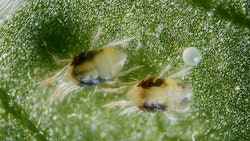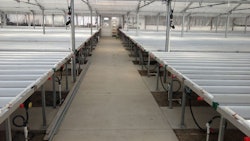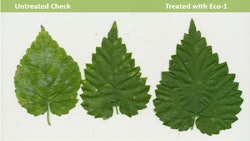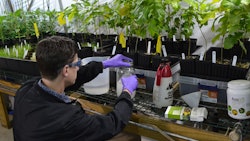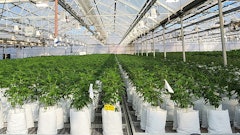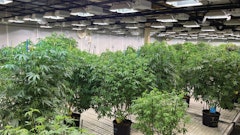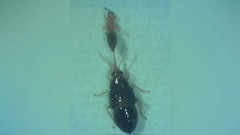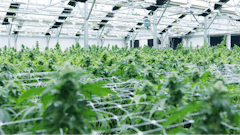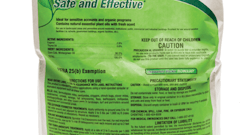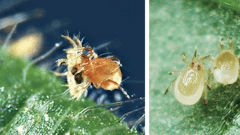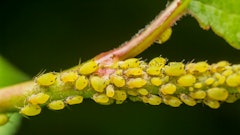
1. Which beneficial insects can help cannabis growers manage pests?
Cannabis growers have a wealth of options to biologically control pests, including predatory insects, beneficial nematodes, predatory mites, parasitic wasps and microorganisms. Depending on the pest infestation, growers can choose generalist (non-selective) predators or specialist (targeted) predators. Generalists include assassin bugs (Zelus renardii), green lacewings (Chrysoperla rufilabris) and minute pirate bugs (Orius insidiosus). Specialist predators include mite predators (Phytoseiulus persimilis), aphid wasps (Aphidius colemani) and fungus gnat predators (Stratiolaelaps scimitus). Customers who need assistance can call ARBICO Organics for a consultation.
2. Does the growing environment affect which beneficial insects can and should be used?
Environment is very important. In order for beneficial insects to perform at their best, some have environmental “requirements.” Specific temperatures and relative humidity affect consumption of pests, reproduction, development and lifespan. In some cases, light hours can force diapause (a period of arrested development) in beneficial insects. Outdoor growers are limited to the predators suitable for their conditions. Indoor growers have the option to modify their conditions for optimum insect performance.
3. How should growers prepare before releasing beneficial insects?
Monitor the grow environment. Before releasing beneficial insects, the grower should scout the infested area thoroughly, identify the pest affecting their plants and quantify how severe the infestation is. If certain plants or areas are more highly infested, it will be necessary to either quarantine those plants or remove them altogether. If the pest pressure is overwhelming, beneficials alone may not be enough; if the entire growing area is highly infested, growers may need to perform a knockdown. It is also important to choose the species and quantity of predators necessary to outcompete the pest. Continuity is key.
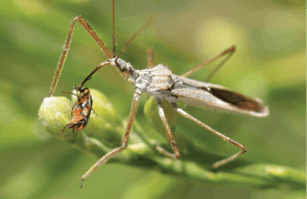
4. Why is continuity important?
A single application of predatory insects will not provide the rate of consumption necessary to compete with rapid pest reproduction rates. Repeated applications on a schedule allow for introduction of additional predators while others transition through their life stages. Specialist insects often require additional lead times, so planning ahead is a necessity.
5. I want to use predatory insects, but I need to spray. What should I consider?
Timing is everything. Applying compatible or soft sprays can help reduce pest populations to a level in which predator introductions can thrive. Make sure sprays have no residual effects that will harm predators. Many biological sprays can be used in conjunction with predators and cause no harm to their populations. Some labs are testing for foreign matter and ARBICO Organics cannot guarantee that leaving insects, in whatever capacity, on the plant will not prevent a result of failing.









